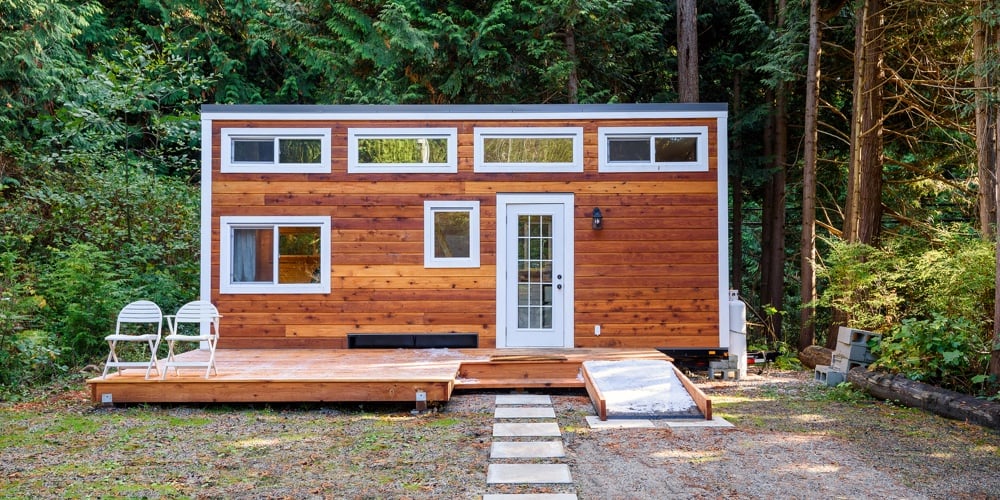Is the tiny house lifestyle for you?

Are you obsessed with shows like Tiny House Hunters? Is it your dream to live in a “tiny house” that is less than 500 square feet?
While we hear much about leading a more environmentally friendly life, cost seems to be the main driver most cite when asked why they are seriously considering going “tiny”.
The Census Bureau reports the average new home in the U.S. costs $369,900. No wonder consumers are taking another look at alternative housing such as tiny homes and RVs.
A tiny home can appeal to those interested in downsizing. For others, it can be viewed as an affordable path to homeownership. According to PAD Tiny Houses, prices can range from DIY low of $35,000 to upwards of $100,000 for custom-built homes.
If you are serious about going tiny, here are a few questions to consider so your dream life doesn’t become a nightmare.
Am I really prepared for living in a tiny house?
Do your research. Sure, it looks so cute on television but will those close quarters have you feeling claustrophobic long-term? TinyHomebuilders.com suggests renting out a tiny home for a weekend, visiting a tiny house show or walking through sheds that are of equivalent size to get a feel for the lifestyle.
Do I want to be completely off the grid?
Calculate the additional costs that will need to be factored in. And consider the inconvenience of off-the-grid living. Compost toilets, water collection and generating your power takes a considerable amount of extra work.
What other costs do I need to think about with tiny homeownership?
When building a tiny house, you’ll need to apply for various permits. These include electrical permits, plumbing permits and more. Permit costs and forms vary from place to place, so check building permit requirements on your local city and county websites.
Where will I park my tiny house? What are the zoning restrictions?
You can’t assume it’s okay to park in any empty lot. Even your parents’ large lot might be restricted to additional structures. Check your city and counting zoning regulations before building.





